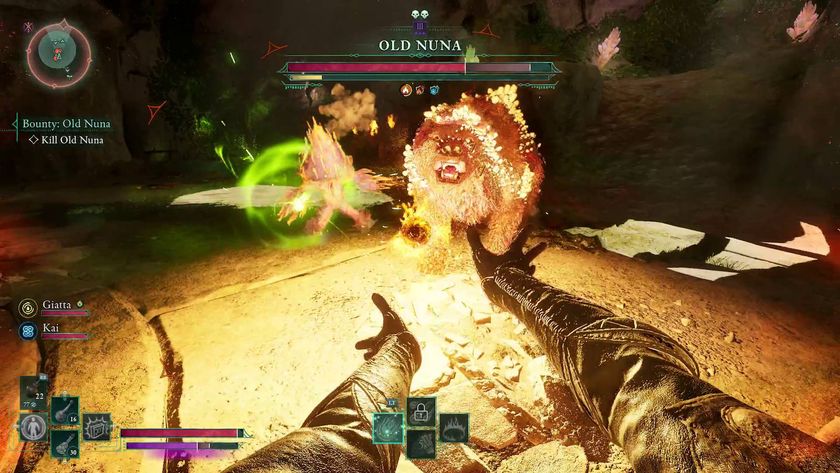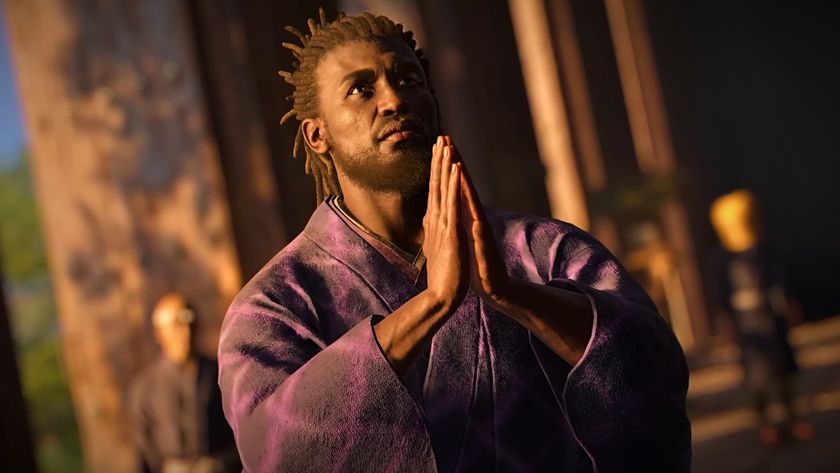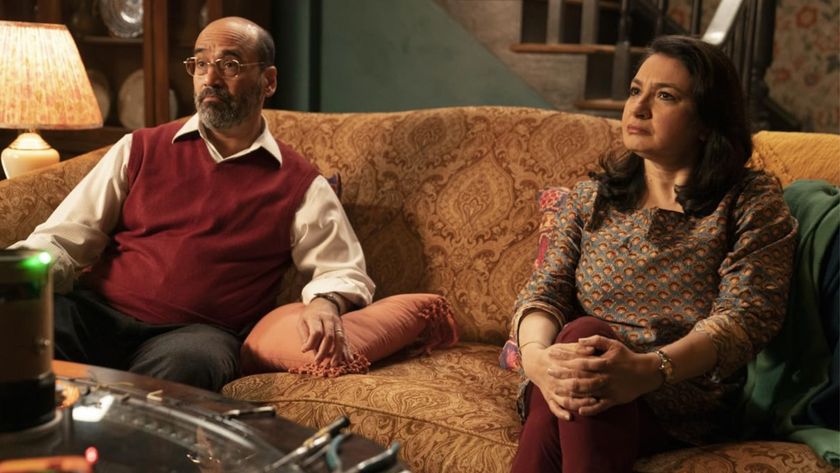How Elden Ring, The Hobbit, and Guitar Hero are shaping Flintlock: The Siege of Dawn
The indirect follow-up to 2018's Ashen is looking good ahead of its "early 2023" release
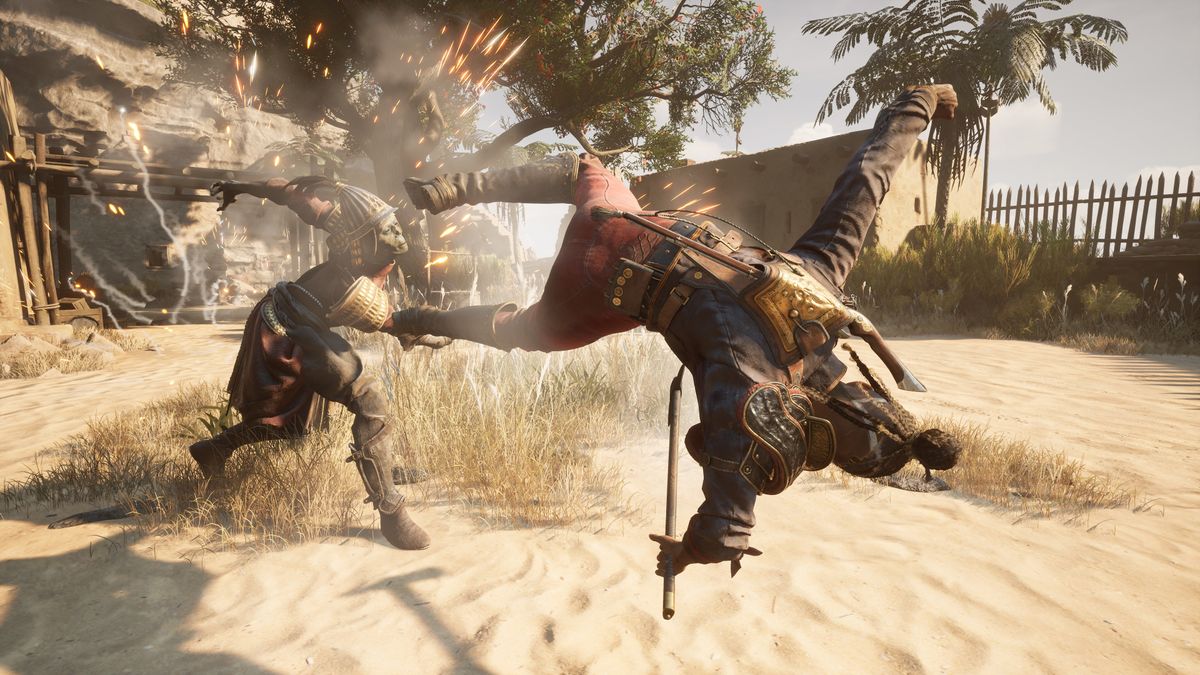
Flintlock: The Siege of Dawn, the upcoming Soulslike from A44 Games, is a melting pot of ideas and inspirations. For one, it's the indirect follow-up to the developer's 2018 action role-player Ashen – a thoughtful slant on the genre which, whilst far from revolutionary, is a wonderful example of the formula executed well. The New Zealand outfit's next outing is also a Soulslike game, built in the looming shadow of Elden Ring – the biggest, most ambitious project Dark Souls mastermind FromSoftware has ever crafted, one which has undoubtedly set a new standard for other genre games to be compared against. And, in a previous life, members of the A44 Games team worked at Weta Digital, a special effects studio who helped bring the fantastical beasts of Peter Jackson's The Hobbit film series to life.
Which is to say: the DNA that underwrites Flintlock: The Siege of Dawn is multifaceted. And while creating a straight Ashen sequel might have an easier proposition for the developer's second project, this team isn't one for shying away from a challenge. "Everything is dialed up in this game," says A44 head Derek Bradley. "After having previously worked on the Hobbit movies, it was refreshing for us to go into this really stylized minimalistic game with Ashen… now, in our stylish stylistic choices, we still like to push the colors, push the lighting, push everything as hard as we possibly can, and we try to be as bold as we possibly can. Starting with a new IP in Ashen, has, I suppose, emboldened us even more with Flintlock."
Shark tank
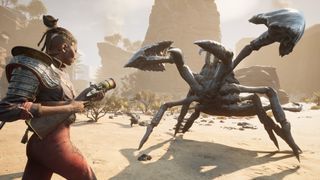
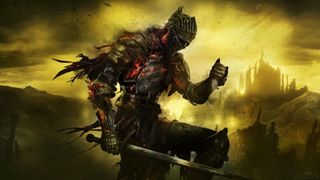
Dark Souls 3 has secret fight clubs that represent one of the game's biggest challenges
Not that Ashen didn't excel in the looks department, but Flintlock really drives things forward from an aesthetical point of view. As discussed in a behind the scenes trailer released by the developer last month, its narrative and action unfold within an open-world that's split into three subsections, each with its own unique environment and architectural style. With that, expect everything from sprawling Doric Order-aping empires, to medieval-style townships, vacuous cave networks, and idyllic sunkissed peninsulas – each one laden with secrets ripe for intrepid explorers.
For anyone familiar with Elden Ring, or, indeed, the broader spectrum of open-world and/or open-ended games, none of this is new – but Bradley reckons that, against the mold of the most successful big-hitters, it's the minutiae in execution that stands each genre game apart. The inclusion of a bespoke central character, for example, sees Flintlock's set-up reflecting the likes of God of War over Dark Souls; while its challenging combat, that sees players facing off against monstrous bosses, perhaps mirrors the systems FromSoftware has popularized throughout the last decade.
In Ashen, Flintlock's indirect forerunner, its interpretation of an open-world was anchored by its evolving campsite HQ, where players would recruit roving NPCs, who'd in turn expand their own little corners of the settlement over time. "In Flintlock, we've looked at that campsite methodology and have applied it to little events that happen out in the world. So, maybe a little bit like what Red Dead Redemption does, we'll find a little campsite, and then there's a little tableau going on over there; this little story that you can believe in, and so you you have these little pockets out in the world and these nodes that will tie everything together."
Bradley says that in order to create the most credible world possible, he and his team must play to their collective strengths. He adds: "To create that living, breathing world, it can't just be [one person] directing. It's got to be what other minds would place in this world, to make it believable. We did this interesting thing called the design Shark Tank, where all the designers brought whatever they could to the table. And if it was in scope, and it sort of felt like it made sense, we would get them to build it. We had a bit of fun for a few months, but, at the same time, I think it was all integral to the open world we have now."
Guitar heroes
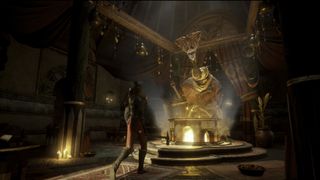
"We talk about Flintlock like it's Guitar Hero. If you can visualize our game without the enemies, then it's just Guitar Hero".
Games like Elden Ring, of course, have inspired Flintlock, in the same way Ashen leant pretty heavily on the Souls series' core tenets. A sprawling world, whimsical characters, otherworldly magic, deadly enemies and colossal bosses – it's all there with its own twist, not least guns in battle and Metroid-like abilities, such as double jumps and wall rappels. Beyond the familiar FromSoft blueprint, though, A44's approach to combat structure is quite unique, rooted in the principles of music and rhythm.
Sign up to the 12DOVE Newsletter
Weekly digests, tales from the communities you love, and more
"We actually write out our combat animations," Bradley explains. "And it's not just our combat ones, we write almost everything out in a beat structure before we animate it. So everything's got a certain BPM, everything is done on that beat structure. And because of that, you engineer the dance, you know, you engineer the rhythm, and then, suddenly, everything fits. You have all of these enemies that are doing quite different things, they can all be attacking you, and you're just slipping between them. Just magically, it all lines up because you're in rhythm."
"I think that's the biggest thing we've brought over from Ashen. It was very minimalistic in its approach, and it was like: 'How much can we strip the genre down and still have it hold together?' The thing that we landed on was rhythm. We talk about Flintlock like it's Guitar Hero. If you can visualize our game without the enemies, then it's just Guitar Hero. And so then the opportunities that we have for players to use these different things are pretty much like different instruments. The axe might be your drummer, the lead guitarist might be your guns, and using magic abilities is like this massive gong that sounds every time you use them. This is something we honed in on, and we've been very cognizant of the experience as we add things to the players' repertoire. We ask: 'How does this feel, as I become an expert in weaving between these things?' Weaving between them is the point, and that you feel like you're in concert, and then the enemies are in concert with you."
All of which sounds absolutely fascinating. Ashen wore its Dark Souls inspirations firmly on its sleeve, in its style and substance, and it seems Flintlock is equally comfortable flaunting the formulae it pays such close deference to. But here it seems A44 Games is going bigger, bolder and more adventurous than ever before. Ashen, Dark Souls, Elden Ring, Peter Jackson's The Hobbit, and, strangely enough, Guitar Hero all hold a distinguished place in the lineage of Flintlock: The Siege of Dawn, and, from what we've seen so far, the end product looks lovely. Sidestepping a straight sequel to its first game was a bold move from A44 Games, but there are little signs of sophomore slump at this juncture. And, for me, its "early 2023" release window can't come soon enough.
Like your Soulslikes? Check out our best games like Dark Souls list.

Joe Donnelly is a sports editor from Glasgow and former features editor at 12DOVE. A mental health advocate, Joe has written about video games and mental health for The Guardian, New Statesman, VICE, PC Gamer and many more, and believes the interactive nature of video games makes them uniquely placed to educate and inform. His book Checkpoint considers the complex intersections of video games and mental health, and was shortlisted for Scotland's National Book of the Year for non-fiction in 2021. As familiar with the streets of Los Santos as he is the west of Scotland, Joe can often be found living his best and worst lives in GTA Online and its PC role-playing scene.
- Josh WestEditor-in-Chief, 12DOVE
Most Popular






